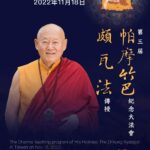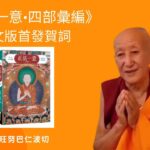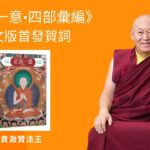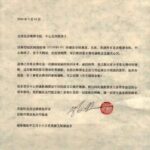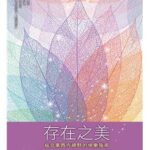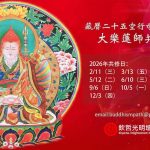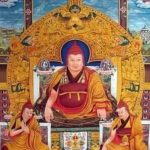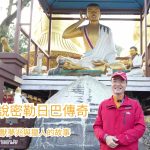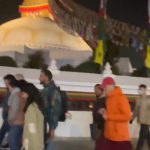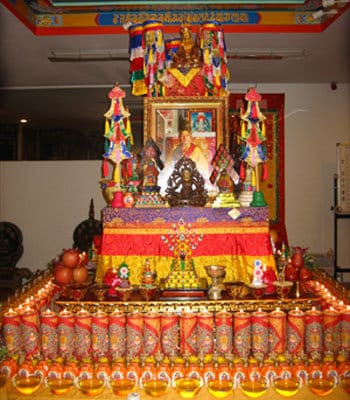
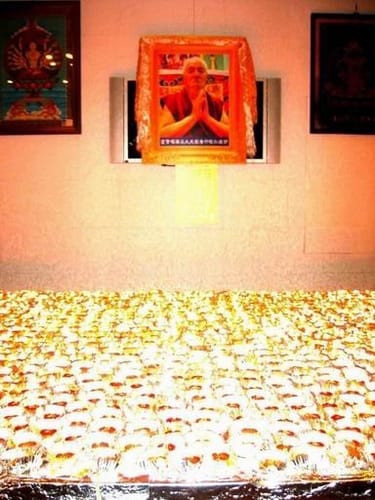
值此人天共悲之際,巴麥欽哲仁波切特提供他在薩迦茶支派法王秋吉赤千仁波切年初圓寂後,應其寺院─大彌勒寺請求,所譯出的「上師圓寂後如何對彼做供養」一文如下,令法友知曉。
復次,(香巴拉)月賢王請問世尊大金剛持:「一切功德源頭之上師,若逝將無供養處,此時如何對彼行供養? 請汝務必大悲而答覆。」世尊大金剛持答曰:「月賢一心而傾聽! 具德上師入滅後,因大信心頻落淚,粗細微塵無量劫,罪業藉此得清淨,來世轉生彼足前。畫師之相憶彼德,念其恩德與佛行,至心禮敬復祈請,等同供養真實師。誓戒無損善幸子,供養上師之靈骨,將能成滿上師願,能成上師諸佛行,常為上師所執持。善憶上師圓寂日,年年行做大供養,能淨傷害上師身、違背乖離師言語、令師不喜諸惡行,上師加持常住心相續。」
此文係十四世紀之薩迦學者貢噶卓秋所寫,為第三世巴麥欽哲之名義所加持者─金剛上師黃英傑恭譯
King Dawa Sangpo made supplication to Lord Buddha Baghvan Great Vajradhara,
“There will remain no object of extolling and offering when spiritual Gurus, the source of all qualities passed away into Nirvana. However, if there exist any other means to extol and make offering to them, oh lord! You ought not to stop showering your compassion to us”.
Lord Buddha proclaimed, “oh king Chandra Badhra!?Listen with one-pointed mind. At the time of passing away of genuine Guru endowed with spiritual characteristics, if (disciple) shed tears with grieved heart, massive evil deeds accumulated during number of eons equal to the gross and subtle atoms, will be purified and one will be born at (his) presence in future”.
“The art of recollecting the spiritual qualities; kindness; enlightened activities of Gurus and making supplication frequently with the devotion from the depth of heart while designing musk, and drawing paintings will become identical to extolling and making offering to the Guru in his real life”.
“If fortunate disciple whose samaya is not degenerated, make an offering to the mortal remain of the Guru, sacred wishes of Guru be fulfilled; disciples will successfully accomplish the enlightened activities of Guru and one will always be sustained by him”.
“Ascertaining the day, month and year when Guru passed into Parinirvana, if one makes offering, all the evil deeds one had performed with regard to hurting physical body; disobeying his speech; and creating annoyance to his heart will be purified, and the blessing of Guru will then enter into one’s mental continuum”.
An exerpt from the collection of works of Kunga Drolchok, a renowned Sakya scholar lived around 14th century.

